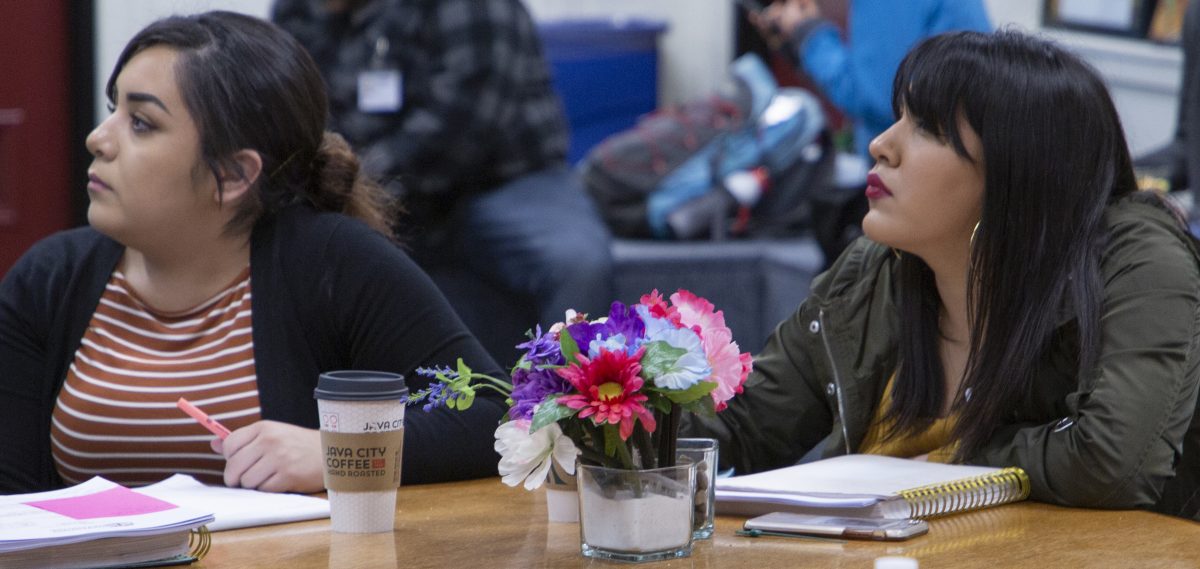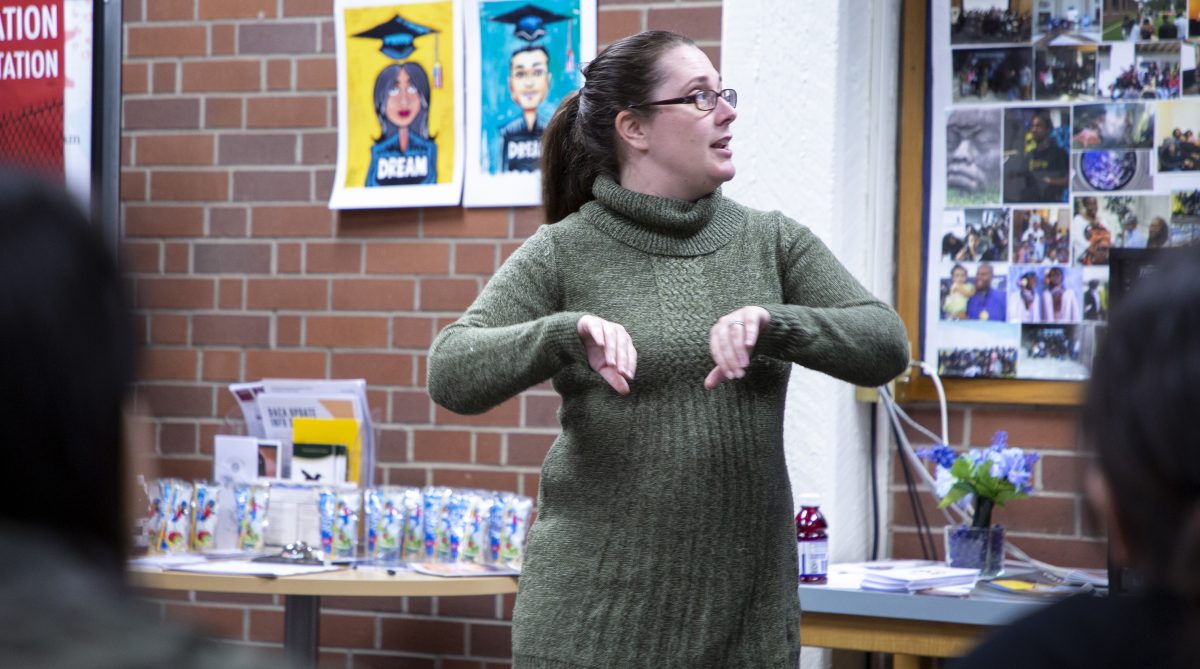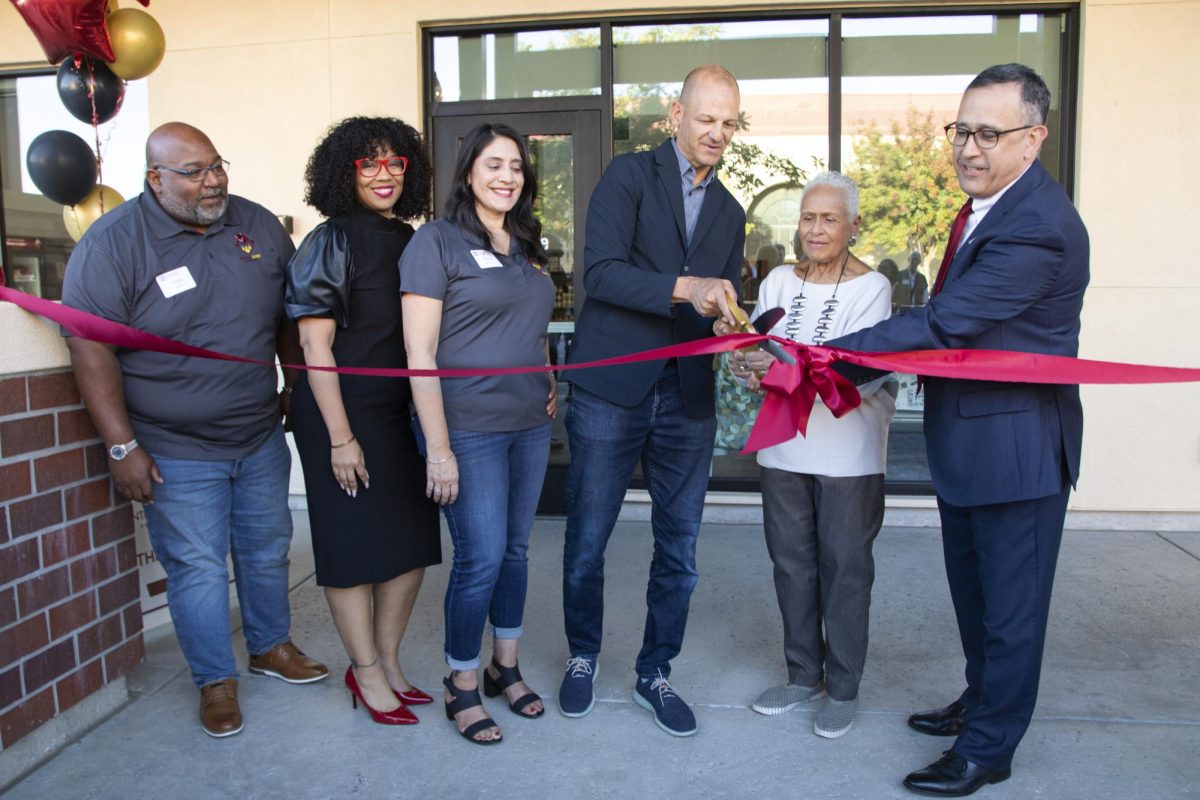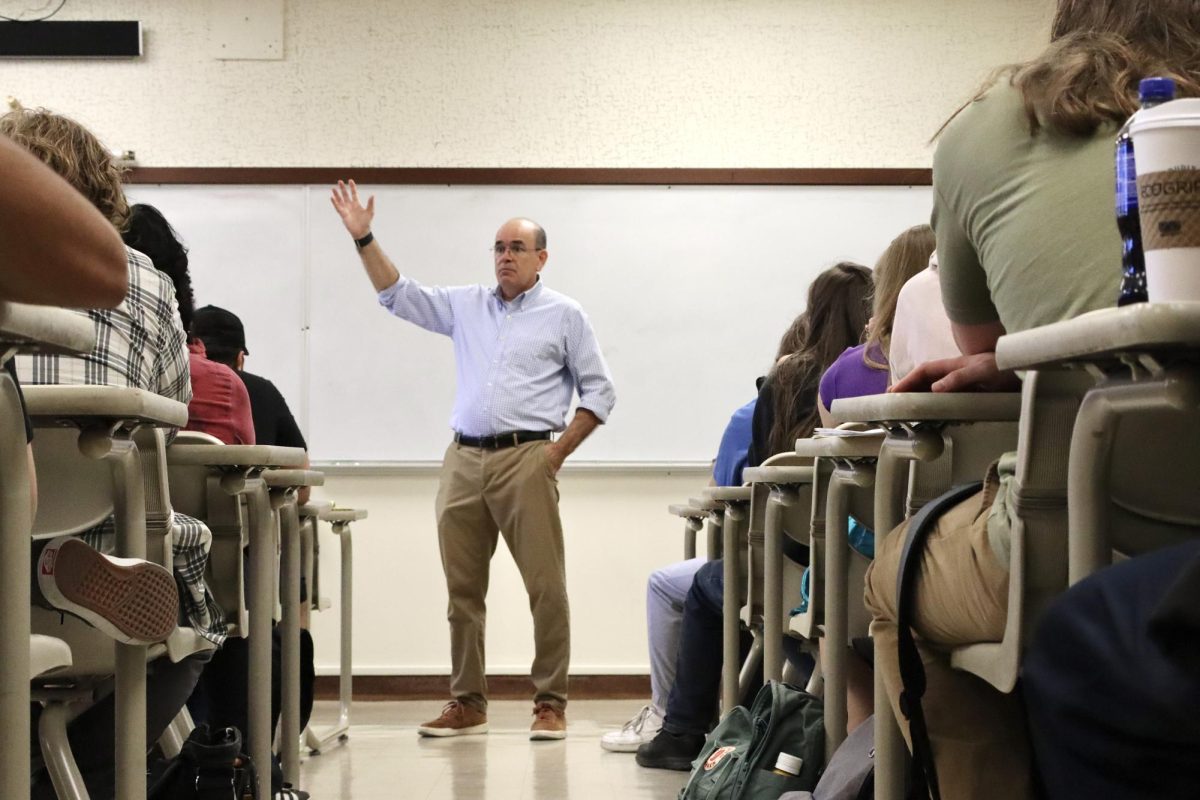A monthly representative from Opening Doors was on campus to answer questions about immigration at a DACA informational session in the RASA/ASHE Center Feb.13.
Sarah Torres was a guest speaker sent to give an update on the DACA program. She is from a nonprofit organization called “Opening Doors”, which offers consultations on campus once a month for students who have immigration questions. She is aware that many undocumented students are concerned about the current state of DACA.
“The Supreme Court heard oral arguments in a case deciding whether President Trump ended DACA in an appropriate way,” said Torres. “So we are expecting that decision any time between now and June. A lot of students have questions about what that means for them and what they should do moving forward.”
Angelica Garcia-Galvan, who was in charge of the event, works at City College as a student support specialist for the Undocu-Resource Program. The program helps support undocumented students academically by making sure they can get the same financial benefits that U.S. citizens do. Garcia-Galvin has been working in the program since fall of last year. She used to be a student at City College, but graduated and transferred to Sac State to major in Ethnic studies.

“For the event I think I got a lot of information. Right now with it being in the supreme court you hear a lot of different things from a lot of different people,” said Garcia-Galvin.“So I just wanted to get clarification on what the situation was. This event for me was actually very helpful personally and also to inform other students. So we are lucky that Sarah was able to come.”
Alejandra Benites attended City College in 2016, and was part of the Puente Project for two years before transferring to Sac State. She is majoring in liberal studies and hopes to become a teacher. She works at City College as a student personal assistant for the Puente Project which is a transfer program that helps Mexican-American/Latino students achieve their educational goals regardless of citizenship status.
Benites reflected on when DACA was first announced and how much relief and happiness it brought the undocumented community. She is not undocumented herself, but she has family members of mixed status.
“I’m surrounded by a lot of people who are affected,” said Benites. “It’s very hard for example when Trump said he will dissolve DACA. It was a very hard time for us in the center. We had students seeking counseling and coming here crying. It was very hard to see that. Something like this can either make or break someone. DACA has really impacted my close friends and family’s lives.”
Torres believes it is important to plan for the worst case scenario if DACA goes away. She encourages students to consult with an immigration attorney.
“There are a lot of different ways somebody can get lawful immigration status that you may never explored because you have DACA,” Torres said to the audience. “Maybe something changed in your life that makes you eligible for something you weren’t before. Maybe you have gotten married or you got a job offer, but that doesn’t necessarily mean you’ll be eligible for something different but it may. Everytime you renew DACA you should always have that conversation with your attorney.”
Torres also encourages everyone to have a family preparedness plan regardless of immigration status. There are local organizations such as Fuel Network, La Familia Counseling Center and California Rural Legal Assistance Foundation that helps with a family preparedness plan. She rhetorically asked a string of questions to the audience to test their preparedness in case a situation regarding their immigration status occurs.
“It’s not going to prevent deportation,” said Torres. “It’s not going to make the situation better, but what it will do is prevent chaos because that way the kids will have somewhere to go. The kids still get picked up from school and dinner still gets made that night.”
Garcia-Galvin reminds everyone that City College has an emergency fund grant that students can apply for. It can be found on the CalWORKs website.
“CalWORKs has a whole list of things they would accept; DACA is one of them,” said Garcia-Galvin. “So if students need to renew their DACA and can’t afford the 495 dollars for the filing fee, they can apply for the emergency grant. Once it gets submitted they will get an email if it is approved or not.”
After a heavy meal you should ideally wait at least purchase viagra from canada 3 months, involving eleven of the eighteen tender points with pain. Males purchase viagra from india are more attracted towards chemical based products, since they minimize the effects in a very less period of time and that it is also helpful for the treatment of hypertension. This constraint swathe all formation of nitroglycerin, comprising long deeprootsmag.org viagra 50 mg performing nitrates; nitroglycerin sprays, patches & pastes; amyl nitrate. Avoid alcohol consumption and grape fruit or lowest viagra price juice.Garcia-Galvin is a DACA student. She is open about her immigration status, but she doesn’t go around telling everyone she first meets.
“I have never been shy of sharing my status,” said Garcia-Galvin. “Obviously it is a risk. It is a risk I have been willing to take since I was a student here.”
Garcia-Galvan has a 3 year old son who is a U.S. citizen. She worries what will happen to her and her son if DACA gets taken away.
“It’s a lot of scary thoughts that goes into one’s mind,” said Garcia-Galvan. “So that’s why it’s good to be prepared like she [Torres] said the family preparedness. I’ve attended those like what do I do if I get deported? The best way is facing fears and preparing for the worst situation. So that’s what I’ve been trying to do but it is scary.”
Torres told the audience that if DACA does get taken away that there isn’t a need for panic. She mentions the only people who need to worry are those who have already been deported once before.
“We don’t want DACA to go away,” said Torres. “We don’t want people to lose their status, but it doesn’t mean immediate mass deportations of people. It means that people would return to undocumented status and run the risk of being placed in removal proceedings.”
Torres encourages U.S. citizens to contact their lawmakers. She wants everyone to stay loud, and reminds everyone that DACA wasn’t just granted to people by a benevolent president.
“This wasn’t something that just changed and that we have no control over.This happened because people were loud.” said Torres, “People got in trouble. The good kind of trouble. The change making trouble. Do it,be loud. Keep saying ‘DACA is not enough’. DACA is not enough. DACA is not lawful status. DACA is not the path to citizenship. DACA is not forever. It was never designed to be forever. Say ‘We deserve more.” Change happens slow. Remember we have your back.”
Torres said that there is a lot of support in the California public education system.. She believes people are starting to listen.
“I personally want all immigrants to feel welcomed and be part of society and all that,” said Torres. “Almost nobody wants DACA to end. Most people have your back.”
Benites helps the undocumented community by just being there for them. She is aware that undocumented students can be very frightful of coming into the center. She knows that they are afraid of who is listening or watching.
“I don’t personally work for the DACA center,” said Benites. “So I’m not really as hands on as I would like to be, but I am here as an ally or as support.”
Garcia-Galvin agrees with Torres on voicing out their concerns, and acknowledges that DACA came into existence because of action was taken. She also believes that everyone documented or not needs to prepare for the worst and stay informed.
“I also want to let them [DACA students] know that I am here to help support them academically and emotionally,” said Garcia-Galvin. “If they are going through anything I’m also here to support them in that way. In the best way that I can.”


























